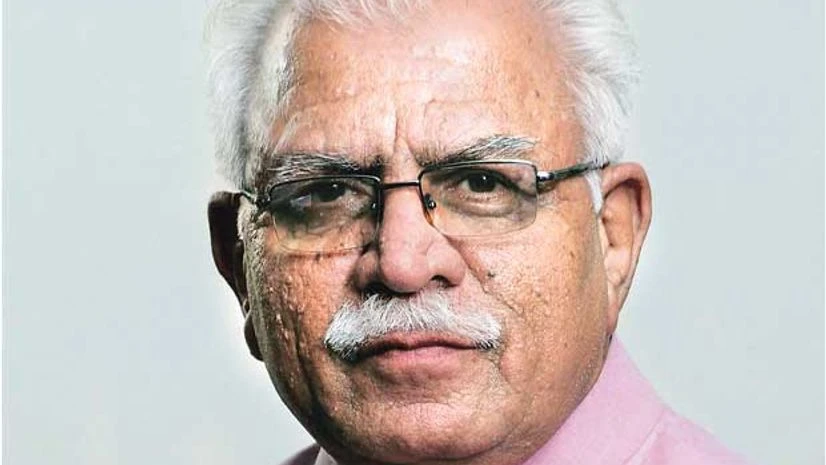On April 10, while addressing a rally at a village in Gurgaon district, Haryana Chief Minister Manohar Lal Khattar declared that he would make Gurgaon a "super smart city". Two days later, he changed the name of the district from Gurgaon to Gurugram.
The logic is that Gurgaon is the village of Dronacharya, the guru of the Pandavas and Kauravas, and, therefore, its name should reflect its epic connection with the Mahabharata. This, he said, was a long-standing demand of the locals.
Now, if Gurugram means "village of the guru", so does Gurgaon (or Gurugaon, which many are saying would have been a better alternative if a name change was indeed in order). However, through this tactical name game, Khattar has brought Dronacharya back into conversation and has overnight added a Hindutva touch to Gurgaon's cosmopolitan character.
Also Read
A first-time MLA from Karnal and the first chief minister of Haryana from the Bharatiya Janata Party (BJP), Khattar is an old soldier of the Rashtriya Swayamsevak Sangh (RSS). Incidentally, 'Madhav Bhawan', the RSS office at Sector 12-A of Gurgaon, has for long had 'Gurugram' in its address. The blue board pointing to the office also reads 'Gurugram'.
Born on January 1, 1954, Khattar joined the RSS in 1977 at the age of 24. He moved to BJP in 1994. Those who know him say that while he might lack administrative experience, he is completely entrenched in the RSS ethos. So much so that he chose to remain a bachelor to work as an RSS pracharak (propagandist).
His proximity with another former RSS pracharak, Prime Minister Narendra Modi, is also no mystery. It was Modi who handpicked him to lead the first BJP government in Haryana.
Under him, Haryana became one of the first states, after Maharashtra, to make the sale of beef a non-bailable offence with five years of rigorous imprisonment.
The going, however, hasn't been easy for the first Punjabi chief minister of the state that is dominated by Jats. His lowest point as chief minister was his response to the recent violent agitation by the Jats for reservation. Many felt Khattar's response to that crisis, one of the worst the state has witnessed, was tentative and that he did not appear to have the confidence to take on the Jat community. In the end, he bowed down and the Haryana Assembly passed the Jat quota Bill.
However, if he has been tentative, there have also been times when he has shown his proactive side - like making it mandatory for those contesting the panchayat and urban local body elections to have a minimum educational qualification. More recently, he stood up for the allottees of various housing projects developed by real estate firm Unitech in Gurgaon. Amidst allegations that the firm was delaying promised housing projects, Khattar, for the first time, presided over the monthly meeting of the Gurgaon grievance committee and appointed a panel to investigate Unitech's assets in India and abroad.
Like in the party, Khattar has worked his way up in life. His father, Harbans Lal Khattar, and grandfather came to Rohtak from Pakistan during Partition. For some time, they worked as labourers, then opened a shop in Rohtak and eventually bought agricultural land. Khattar was born in Rohtak.
There was a time he wanted to become a doctor and moved to Delhi to prepare for the entrance exam. Somewhere down the line, he gave up on that idea and instead set up a clothes shop in Delhi's Sadar Bazaar. Alongside as he did his graduation from Delhi University, he learnt about the RSS and joined the Sangh.
The rest is history. And Gurgaon-turned-Gurugram is its latest chapter.

)
